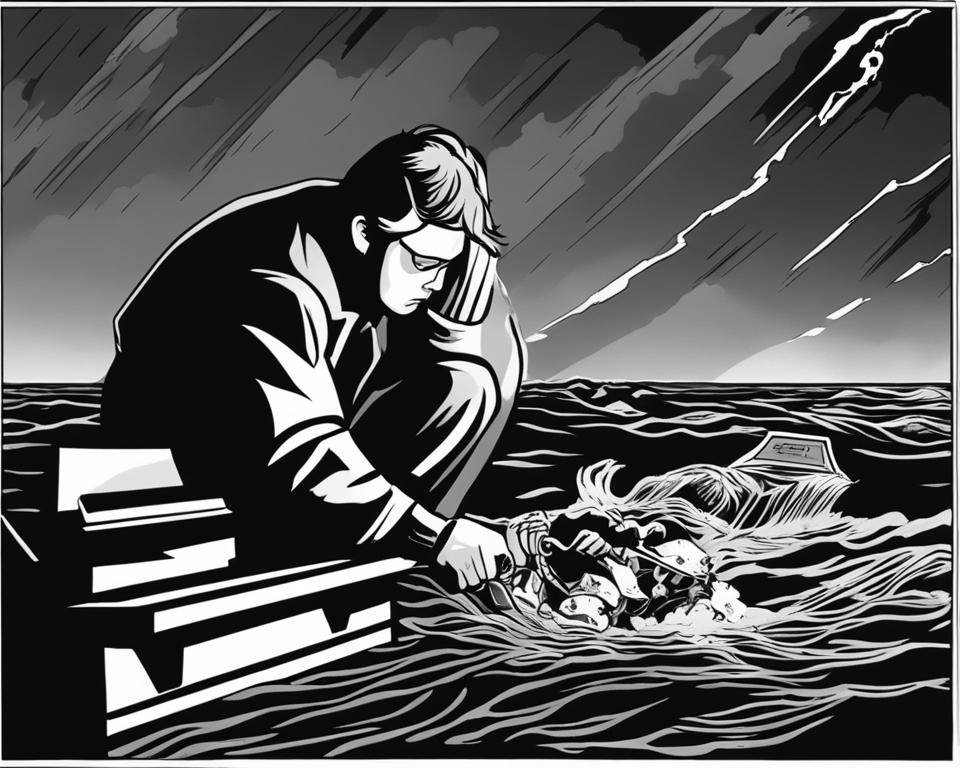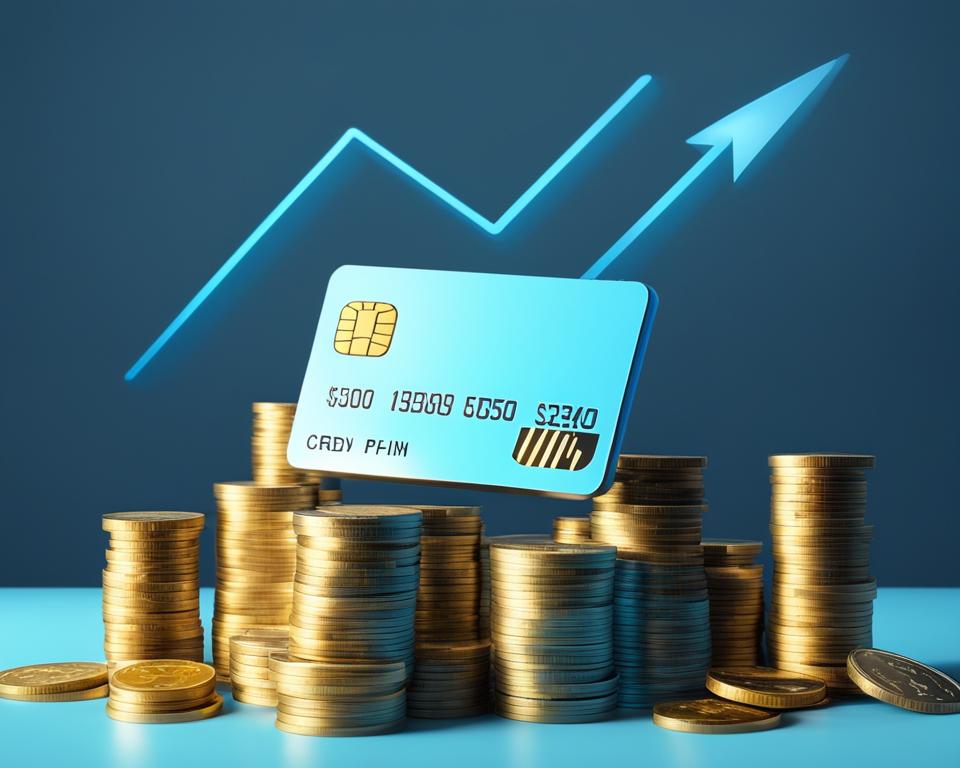Having a good credit score is vital for financial well-being. It helps determine your eligibility for loans, credit cards, and favorable interest rates. However, there may be instances when your credit score unexpectedly drops. It’s important to understand the reasons behind this decline to take appropriate steps to improve your credit health.
There are several factors that can contribute to a lower credit score. Let’s explore some common reasons why your credit score may go down:
- Late or missed payments
- Changes in your credit utilization rate
- Reduction in your credit limits
- Closing a credit card
- Paying off a loan
- Opening multiple lines of credit
- Mistakes on your credit report
- Becoming a victim of identity theft
Key Takeaways:
- Understanding why your credit score drops is essential for maintaining good credit health.
- Late or missed payments, changes in credit utilization, reduced credit limits, closing credit cards, paying off loans, opening multiple lines of credit, inaccuracies on your credit report, and identity theft can all contribute to a lower credit score.
- Regularly monitoring your credit, paying bills on time, and minimizing debt are important steps towards improving and maintaining a good credit score.
Late or Missing Payments
Payment history is a critical factor in determining your credit score. In fact, it accounts for 35% of your FICO score. This means that any late or missed payment can have a significant impact on your credit score.
When you fail to make a payment on time, it can result in negative consequences for your credit. Payments that are past due by more than 30 days can be reported to credit bureaus, causing your credit score to drop. Delinquencies of 60 or 90 days can have an even greater effect.
To give you a clearer picture, consider the following example:
John recently missed a credit card payment due to an oversight. Unfortunately, this single missed payment caused his credit score to decrease by 30 points.
As you can see, the impact of a late or missed payment can be significant.
It is crucial to make all your payments on time to maintain a good credit score. This means keeping track of due dates and setting up reminders if necessary. By staying on top of your payments, you can avoid the negative consequences of late or missed payments and protect your credit score.
| Payment History | Impact on Credit Score |
|---|---|
| Payment made on time | No negative impact |
| Past due by up to 30 days | Possible drop in credit score |
| Delinquency of 60 or 90 days | Significant decrease in credit score |
Change in Credit Utilization Rate
One of the key factors that can impact your credit score is your credit utilization rate. This rate measures the amount of credit you use compared to the available credit limit. Lenders consider this rate when assessing your financial health and creditworthiness. A high credit utilization rate can indicate to lenders that you may be overextended financially and can result in a decrease in your credit score.
It is recommended to keep your credit utilization rate below 30% for the best credit scores. Maxing out credit cards or increasing your credit utilization ratio can have a negative impact on your credit score and can limit your access to credit products with favorable terms. By keeping your credit utilization rate within this recommended range, you show responsible credit management and present yourself as a lower credit risk to lenders.
High credit utilization can cause your credit score to decrease, as it suggests a heavy reliance on credit and potential difficulty in managing debt. Lenders prefer to see that you are using credit responsibly and not relying too heavily on borrowed funds.
Here is an example to help illustrate the impact of high credit utilization on your credit score:
| Credit Utilization Rate | Credit Score Impact |
|---|---|
| 10% | No impact or positive effect on credit score |
| 30% | No impact or positive effect on credit score |
| 50% | Small negative impact on credit score |
| 70% | Significant negative impact on credit score |
| 90% | Severe negative impact on credit score |
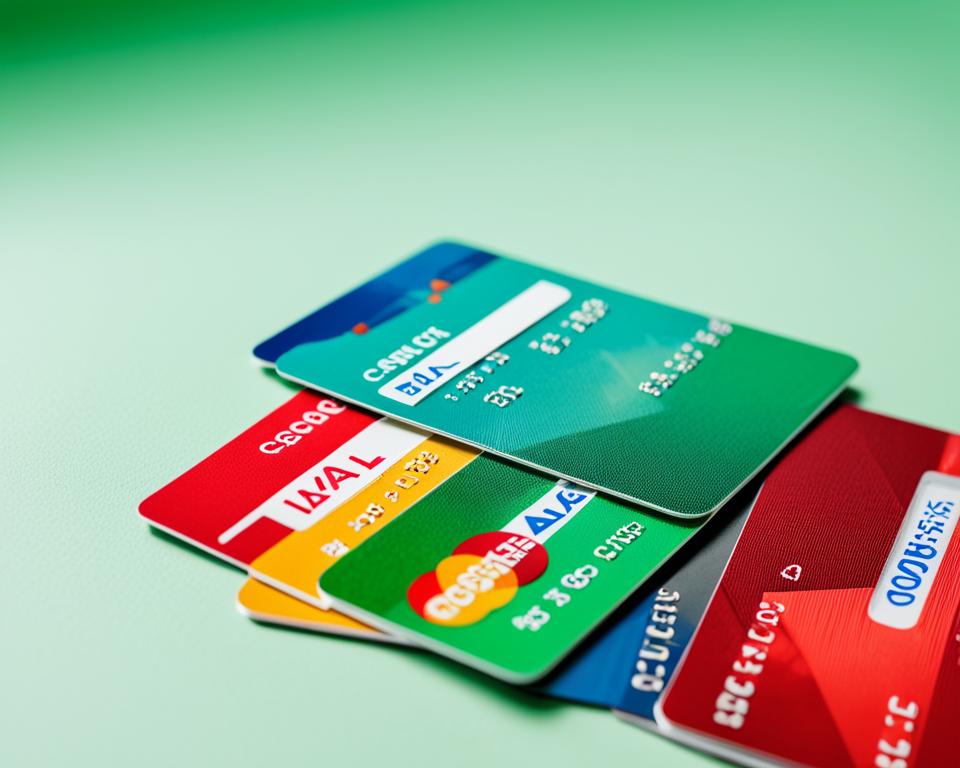
As shown in the table, maintaining a low credit utilization rate is crucial for preserving a good credit score. Increasing your credit utilization ratio, especially to higher levels, can result in a substantial decrease in your credit score.
To manage your credit utilization effectively, it’s essential to keep track of your credit card balances and available credit limits. If your credit utilization rate is high, consider paying down your balances or requesting a credit limit increase to reduce your ratio. By maintaining a low credit utilization rate, you can help improve your credit score and present a positive image to lenders.
Reduced Credit Limit
One factor that can negatively impact your credit score is a reduced credit limit. When your credit card issuer decreases your credit limit, it can have several consequences for your credit health.
Firstly, a decreased credit limit can lead to an increase in your credit utilization ratio. Your credit utilization ratio is the amount of credit you are currently using compared to your total available credit limit. For example, if you have a credit limit of $10,000 and a balance of $5,000, your credit utilization ratio is 50%. However, if your credit limit is reduced to $7,000 while your balance remains the same, your credit utilization ratio increases to 71%. A higher credit utilization ratio is seen as a higher risk to lenders and can result in a decrease in your credit score.
To understand the impact of a reduced credit limit on your credit utilization ratio, consider the following example:
| Credit Limit | Balance | Credit Utilization Ratio |
|---|---|---|
| $10,000 | $5,000 | 50% |
| $7,000 | $5,000 | 71% |
As you can see from the table above, a reduced credit limit can significantly impact your credit utilization ratio, which, in turn, affects your credit score.
Additionally, a reduced credit limit can make it more challenging to manage your finances effectively. It may reduce your available credit for emergencies or necessary purchases. This can lead to increased reliance on credit or higher credit utilization on other accounts, further impacting your overall credit health.
To mitigate the impact of a reduced credit limit, it is crucial to monitor and manage your credit utilization ratio. Here are a few tips:
- Keep track of your credit card balances and credit limits.
- Review your credit card statements regularly to ensure accuracy.
- Adjust your spending habits if necessary to maintain a healthy credit utilization ratio.
- Consider contacting your credit card issuer to discuss the possibility of restoring your previous credit limit.
By proactively managing your credit utilization ratio and taking steps to address a reduced credit limit, you can work towards maintaining a good credit score and overall financial health.
Closing a Credit Card
Closing a credit card account can have a significant impact on your credit score. This is especially true for your oldest credit card, as it lowers the overall credit limit available to you. As a result, your credit utilization ratio, which measures the amount of credit you use compared to your available credit limit, will increase. This can be detrimental to your credit score, as higher credit utilization ratios indicate a higher risk of financial instability to lenders.
In addition to increasing your credit utilization ratio, closing a credit card account also has an impact on the length of your credit history, which is another important factor in credit scores. The average age of your accounts is considered, and closing an older credit card can bring down this average. A longer credit history generally demonstrates responsible credit management and can positively contribute to your credit score.
It is generally recommended to keep older credit cards open to maintain a good credit score, unless the card has a high annual fee or tempts you to overspend. By keeping your oldest credit card active, you can preserve the length of your credit history and keep your credit utilization ratio lower.
| Effects of Closing a Credit Card | |
|---|---|
| Credit Utilization Ratio | Length of Credit History |
| Increase | Decrease |
It’s important to note that closing a credit card may still be necessary in certain situations, such as when the card has a high annual fee that outweighs its benefits or when it’s difficult to control your spending with that particular card. However, it’s essential to weigh the potential impact on your credit score before making the decision to close a credit card account.
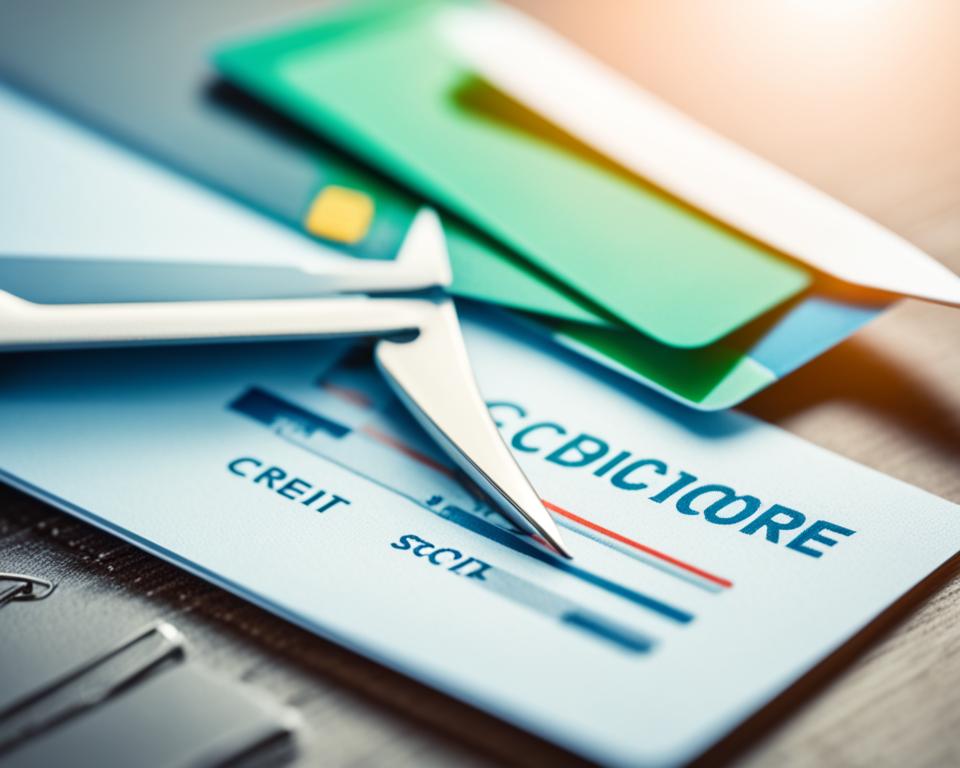
Paying Off a Loan
When it comes to your credit score, paying off a loan can have an unexpected impact. While you might expect your score to improve after successfully repaying a loan, the reality is that it can actually decrease. This may seem counterintuitive, but there’s a valid explanation behind it.
One reason for the decrease in credit score when paying off a loan is the impact on your credit mix. Credit mix refers to the different types of credit accounts you have, such as credit cards or installment loans. Lenders like to see a diverse mix of credit, as it demonstrates your ability to manage different types of loans responsibly. By paying off a loan, you’re effectively reducing the variety in your credit mix, which can lead to a decrease in your credit score.
Example: Let’s say you have a credit history that includes a mortgage loan, a student loan, and a credit card. This mix of credit types positively contributes to your credit score. However, if you pay off your student loan, your credit mix becomes more limited, potentially resulting in a decrease in your credit score.
Despite the temporary decrease in credit score, paying off loans should still be considered a positive financial step. It reduces your overall debt burden and can provide long-term financial benefits. The impact on your credit score is temporary, and your score will likely recover over time as you continue to demonstrate responsible credit behavior.
Comparison of Credit Mix
| Before Paying Off Loan | After Paying Off Loan | |
|---|---|---|
| Credit Type | Number of Accounts | Impact on Credit Mix |
| Installment Loan (Mortgage) | 1 | Decrease in credit mix diversity |
| Revolving Credit (Credit Card) | 1 | |
By reducing the mix of credit types in your credit history, paying off a loan may result in a temporary decrease in your credit score. However, it’s important to remember that this is just one factor influencing your credit score. Maintaining a responsible payment history and keeping your credit utilization low can help offset the impact of paying off a loan.
Opening Multiple Lines of Credit
When it comes to managing your credit, opening multiple lines of credit in a short period of time can have a negative impact on your credit score. Each credit application you submit results in a hard inquiry on your credit report, which temporarily lowers your credit score. Lenders view multiple recent inquiries as a potential sign of taking on excessive debt, which can be seen as a higher risk.
To minimize the impact on your credit score, it is recommended to space out your credit card applications and only apply for new credit when necessary. By giving yourself some time between applications, you can avoid accumulating multiple credit inquiries within a short timeframe.
“Opening several lines of credit within a small window of time can raise concerns for lenders, as it suggests a potential reliance on credit and an increased risk of taking on too much debt,” explains financial expert, Jane Smith. “By spacing out your credit applications, you demonstrate responsible borrowing behavior and limit the impact on your credit score.”
| Impact of New Credit Applications on Credit Score | |
|---|---|
| Multiple Credit Inquiries | Impact on Credit Score |
| Opening numerous lines of credit within a short period of time | Temporary decrease in credit score due to multiple hard inquiries |
| Lenders perceive multiple recent inquiries as a higher risk | Due to the potential for taking on excessive debt |
| Spacing out credit card applications | Minimizes the impact on credit score |
Opening multiple lines of credit can be tempting, especially when there are enticing offers or rewards. However, it’s important to consider how it may affect your credit score in the short term. Spacing out your credit applications and only applying when necessary can help you maintain a healthy credit score.
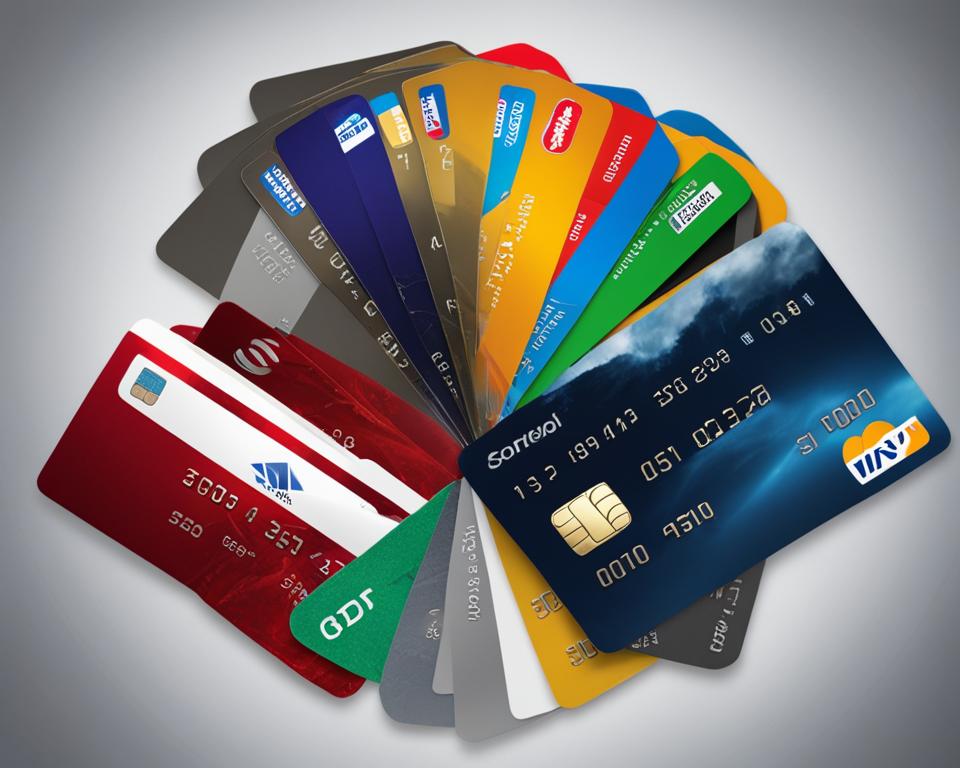
As financial expert, John Davis, advises, “Maintaining a responsible approach to credit and being mindful of the impact of new credit applications is key to safeguarding your credit score. Be strategic in your credit utilization to demonstrate good borrowing behavior.”
Mistakes on Your Credit Report
Inaccurate information on your credit report, such as incorrect personal data or payment history, can negatively affect your credit score. It is crucial to regularly check your credit reports for errors and dispute any information that you believe is inaccurate. Mistakes can occur due to lenders reporting incorrect information or even as a result of identity theft. Disputing errors is your right as a consumer, and the credit reporting agencies are required to investigate and correct any verified inaccuracies.
Checking your credit reports for inaccuracies and taking steps to dispute them is an important part of maintaining a healthy credit profile. Even small errors or discrepancies can have a significant impact on your credit score and overall financial well-being. By regularly reviewing your credit reports and taking prompt action to correct any mistakes, you can ensure that your credit score accurately reflects your creditworthiness.
“Disputing errors is your right as a consumer, and the credit reporting agencies are required to investigate and correct any verified inaccuracies.”
If you find any inaccuracies on your credit report, it is essential to take immediate action. Follow these steps to dispute inaccurate information:
- Review your credit reports: Obtain a copy of your credit report from each of the three major credit reporting agencies – Equifax, Experian, and TransUnion. Carefully review each report to identify any errors or discrepancies.
- Document the errors: Make a note of the specific inaccuracies you have found, including the account names, dates, and any supporting evidence or documents you may have.
- Submit a dispute: Contact the credit reporting agency in writing to dispute the inaccurate information. Include a clear and concise explanation of the error and provide any supporting documents or evidence that help prove your case.
- Follow up: Keep track of your dispute by maintaining copies of all correspondence and monitoring the progress of the investigation. The credit reporting agency is required to investigate your dispute within a reasonable timeframe.
- Review the updated report: Once the investigation is complete, carefully review the updated credit report to ensure that the inaccuracies have been corrected.
It’s important to remember that disputing inaccurate information may require time and persistence, but it is a necessary step to protect your credit score and financial reputation. By actively monitoring and disputing errors on your credit report, you can maintain an accurate credit history and improve your chances of obtaining favorable credit terms in the future.
Being a Victim of Identity Theft
Identity theft can have a significant impact on your credit score. If someone opens fraudulent credit accounts in your name, it can lead to missed payments, high credit utilization, and derogatory marks on your credit reports. It is important to monitor your credit regularly for any signs of identity theft and take steps to address it if you become a victim. Placing fraud alerts and freezing your credit can help protect your credit score.
| Steps to Protect Your Credit Score | How It Helps |
|---|---|
| Monitor your credit regularly | Identify any suspicious activity early and take immediate action |
| Review your credit reports | Check for any unauthorized accounts or inaccurate information |
| Place fraud alerts | Notify lenders to verify your identity before approving credit applications |
| Freeze your credit | Restricts access to your credit report, preventing identity thieves from opening new accounts |
| File a police report | Official documentation of the theft to support your case with creditors and credit bureaus |
Remember, taking immediate action is crucial to minimize the impact of identity theft on your credit score. Be vigilant and proactive in protecting your personal information and financial well-being.
Understanding Good and Bad Credit Scores
A good credit score is an essential financial asset that can open doors to various credit opportunities. Conversely, a bad credit score can present challenges when it comes to accessing credit or obtaining favorable interest rates. Understanding the factors that contribute to good and bad credit scores is key to managing your financial health. Let’s delve into the details.
Generally, a good credit score falls within the range of 670 to 739. Scores above 739 are considered very good or exceptional, showcasing a solid creditworthiness to lenders. On the other hand, credit scores below 669 are deemed fair or poor, indicating a higher level of risk to potential creditors.
Having a good credit score offers numerous benefits. With a good credit score, you are more likely to qualify for various credit products, such as loans and credit cards, at lower interest rates. This can potentially save you significant amounts of money over time.
So, where does the average credit score in the United States stand? According to recent data, the average FICO score in the US in 2022 was 714. While this average may serve as a helpful benchmark, it’s important to remember that individual credit scores can vary based on personal financial circumstances.
Comparing Good, Average, and Bad Credit Scores in the US
To provide a clearer picture, let’s compare the different credit score categories:
| Credit Score | Category |
|---|---|
| 670 – 739 | Good Credit Score |
| Above 739 | Very Good or Exceptional Credit Score |
| Below 669 | Fair or Poor Credit Score |
As you can see, maintaining a good credit score is advantageous for securing favorable credit terms. On the other hand, bad credit scores may limit access to credit or result in higher interest rates on loans and credit cards.
It’s important to note that a credit score is just one component of your overall financial health. Applying responsible financial habits, such as paying bills on time and minimizing debt, can help improve your credit scores over time.
Tips for Improving Your Credit Scores
If you want to improve your credit scores, there are certain steps you can take to boost your creditworthiness. By following these tips, you’ll be on your way to better credit health and financial stability.
1. Pay Your Bills on Time
One of the most important factors that affects your credit score is your payment history. Making your bill payments on time is crucial to maintaining a good credit standing. Late or missed payments can have a negative impact on your credit score, so be sure to stay organized and meet your payment deadlines.
2. Minimize Overall Debt
Another key factor in improving your credit scores is minimizing your overall debt. High levels of debt can lower your creditworthiness and make it harder for lenders to trust you as a borrower. Try to pay off existing debts and avoid taking on new ones unless absolutely necessary.
3. Keep Credit Card Balances Low
One way to improve your credit scores is by keeping your credit card balances low. High balances relative to your credit limit can negatively impact your credit utilization ratio, which is an important factor in credit scoring models. Aim to keep your credit utilization below 30% to maximize your credit score potential.
4. Regularly Monitor Your Credit
Monitoring your credit regularly is essential for understanding your credit health and staying on top of any changes or errors that may impact your scores. Check your credit reports for inaccuracies and dispute any information that you believe is incorrect. By actively managing your credit, you can ensure that your credit scores accurately reflect your financial behavior.

Conclusion
Understanding the factors that can cause your credit score to drop is essential for maintaining good credit health. Late or missed payments, changes in credit utilization, reduced credit limits, closing credit cards, paying off loans, opening multiple lines of credit, inaccuracies on your credit report, and falling victim to identity theft can all contribute to a decrease in your credit score.
By staying vigilant and taking proactive steps to address these factors, you can work towards improving and maintaining a good credit score. It is important to make all your payments on time, keeping your credit utilization rate below 30% and monitoring your credit limits. Consider keeping older credit cards open to maintain a longer credit history and diverse credit mix. Regularly check your credit reports for errors and dispute any inaccurate information. Additionally, take measures to protect yourself from identity theft, such as placing fraud alerts and freezing your credit when necessary.
Your credit score plays a crucial role in your financial life, affecting your ability to qualify for loans, credit cards, and favorable interest rates. By understanding the factors that can impact your credit score and taking proactive measures to improve and maintain it, you can set yourself up for financial success and better credit health.
FAQ
Why did my credit score go down?
There are multiple reasons why your credit score could have gone down, including late or missed payments, changes to your credit utilization rate, reduced credit limits, closing a credit card, paying off a loan, opening multiple lines of credit, mistakes on your credit report, or being a victim of identity theft.
How do late or missed payments affect my credit score?
Late or missed payments can have a negative impact on your credit score. Even one late payment can cause a drop in your score, and past due payments of more than 30, 60, or 90 days can have an even greater effect. It’s crucial to make all your payments on time to maintain a good credit score.
What is a credit utilization rate and how does it affect my credit score?
Your credit utilization rate measures the amount of credit you use compared to your available credit limit. Maxing out credit cards or increasing your credit utilization ratio can indicate to lenders that you may be overextended financially, which can cause your credit score to decrease.
How does a reduced credit limit impact my credit score?
If your credit card issuer reduces your credit limit, it can negatively impact your credit score. A decreased credit limit can increase your credit utilization ratio, which can indicate a higher financial risk to lenders and result in a decrease in credit scores. Monitoring your credit utilization ratio is important to adjust your spending accordingly.
Will closing a credit card account lower my credit score?
Closing a credit card account, especially your oldest one, can hurt your credit score. It lowers the overall credit limit available to you, increasing your credit utilization ratio. It also brings down the average age of your accounts, which is a factor in credit scores. It is generally recommended to keep older credit cards open to maintain a good credit score.
Can paying off a loan cause my credit score to drop?
Paying off a loan, such as a mortgage or student loan, can actually cause your credit score to drop. This is because it reduces the mix of credit types in your credit history, which is considered in credit score calculations. Having a mix of credit, including both revolving credit (credit cards) and installment loans, is beneficial for credit scores despite the temporary decrease.
How does opening multiple lines of credit affect my credit score?
Opening several lines of credit in a short period of time can lower your credit score. Each credit application results in a hard inquiry on your credit report, temporarily decreasing your credit score. Lenders view multiple recent inquiries as a higher risk of potentially taking on too much debt. It is recommended to space out credit card applications and only apply for new credit when necessary to minimize the impact on your credit score.
What should I do if I find mistakes on my credit report?
Inaccurate information on your credit report can negatively affect your credit score. It’s important to regularly check your credit reports for errors and dispute any information that you believe is inaccurate. Mistakes can be the result of lenders reporting incorrect information or identity theft. Disputing errors is your right, and the credit reporting agencies are required to investigate and correct any verified inaccuracies.
How does identity theft impact my credit score?
Identity theft can have a significant impact on your credit score. If someone opens fraudulent credit accounts in your name, it can lead to missed payments, high credit utilization, and derogatory marks on your credit reports. Monitoring your credit regularly for any signs of identity theft and taking steps to address it if you become a victim can help protect your credit score.
What is considered a good or bad credit score?
A good credit score is typically considered to be between 670 and 739, while scores above 739 are viewed as very good or exceptional. Scores below 669 are considered fair or poor. The average FICO score in the US in 2022 was 714. Maintaining a good credit score can offer benefits such as qualifying for more credit products at lower interest rates, while bad scores may limit access to credit or result in higher interest rates.
How can I improve my credit scores?
To improve your credit scores, it is important to pay your bills on time and minimize overall debt. Setting up automatic payments can help ensure timely payments and avoid missed payments. It is also important to keep credit card balances low to maintain a low credit utilization rate. Regularly monitoring your credit can help you identify any changes or errors that may impact your scores.
What are the factors that affect credit scores?
Factors that can affect credit scores include late or missed payments, changes in credit utilization, reduced credit limits, closing credit cards, paying off loans, opening multiple lines of credit, inaccuracies on your credit report, and being a victim of identity theft. Understanding these factors is essential for maintaining good credit health.



